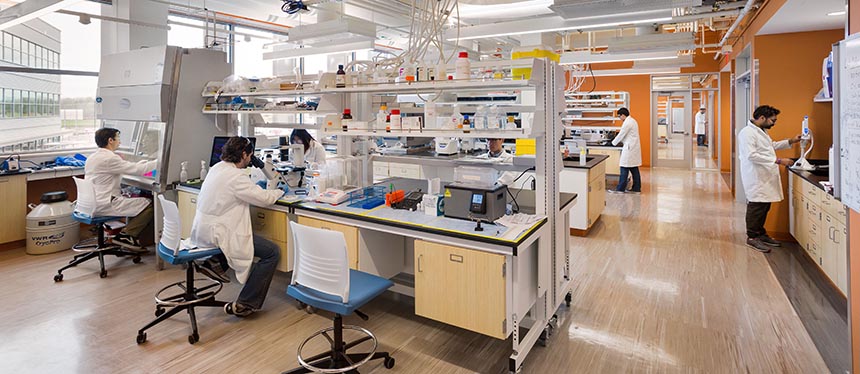newfaculty22
newfaculty22
Meet the eight new faculty members of the Henry M. Rowan College of Engineering
Among the new faces around Rowan and Engineering Halls this semester are eight new faculty members working in five departments within the Henry M. Rowan College of Engineering.The new faculty members bring with them backgrounds that blend academic research and industry experience. Finding ways to engage underrepresented and first-generation college students is a particular area of interest for many of them, and all of them offer fresh insights and perspectives on research, undergraduate and graduate education and the future of the College.
“The growth of our college will continue with the addition of eight new tenured/tenure-track faculty members across five of our departments,” commented Dr. Giuseppe Palmese, Dean of the Henry M. Rowan College of Engineering. “I am delighted to welcome this accomplished group of faculty to our college as they will enhance the experience of our students, through teaching, research, and their leadership.”
Each new faculty member brings his/her own expertise to the College that will used in the classroom and in the research lab. Here is a brief overview of each.
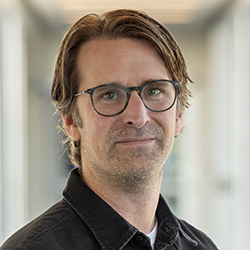 Gregory Ditzler, Ph.D.
Gregory Ditzler, Ph.D.
Associate Professor
Electrical & Computer Engineering
Ph.D. Electrical Engineering, Drexel University, Philadelphia, Pa.
M.Sc. Electrical & Computer Engineering, Rowan University, Glassboro, N.J.
B.Sc. Electronics Engineering Technology, The Pennsylvania College of Technology, Williamsport, Pa.
Dr. Gregory Ditzler has a long history at Rowan. He earned his master’s degree here, taught as an adjunct professor and, while pursuing his Ph.D. at nearby Drexel University, ran undergraduate engineering clinics. After finishing his Ph.D., Ditzler taught at the University of Arizona.
“I was looking for the right opportunity to move back to the East Coast,” he said. “I was so excited when I saw Rowan was hiring.”
Ditzler, who spent two summers at the Air Force Research Lab as a faculty fellow and was honored with the National Science Foundation CAREER Award in 2020, is researching machine learning.
“Fundamentally, I’m interested in learning from data,” Ditzler said. “How do you get a program to learn and adapt over time, as we do, especially when there’s the possibility of an adversary in the environment? To improve the trustworthiness of the software programs we depend on, we need to make machine learning more robust.”
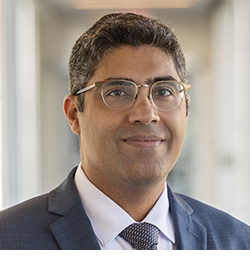 Seyed Hooman Ghasemi, Ph.D., P.E.
Seyed Hooman Ghasemi, Ph.D., P.E.
Assistant Professor
Civil & Environmental Engineering
Ph.D. Civil Engineering, Auburn University, Auburn, Ala.
M.S. Civil Engineering, Zanjan University, Zanjan, Iran
B.S. Civil Engineering, Qazvin University, Qazvin, Iran
Prior to coming to Rowan, Dr. Seyed Hooman Ghasemi worked as a postdoctoral research associate at Washington State University, an assistant professor at Qazvin Azad University and a postdoctoral research associate at Auburn University.
“I’m super happy to be remaining at Rowan in a full-time role” after serving as a lecturer for the 2021-2022 academic year, Ghasemi said. “I’m trying to use students’ fresh minds and ideas in my teaching style.”
Ghasemi, whose main research focus is on structural reliability, is working on different aspects of research in areas like modeling the reliability of bridges and other structures, quantifying loads and measuring risks associated with natural hazards and structural failures.
“I really enjoy formulating equations to help us better understand structural reliability and fracture and failure mechanics,” said Ghasemi. “Understanding the behavior of a system and the consequences of forces on a structure could be the key to designing safer bridges.”
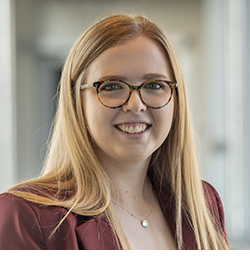 Cassandra Jamison, Ph.D.
Cassandra Jamison, Ph.D.
Assistant Professor
Experiential Engineering Education (ExEEd)
Ph.D. Biomedical Engineering, University of Michigan, Ann Arbor, Mich.
M.S. Biomedical Engineering, University of Michigan, Ann Arbor, Mich.
B.A. Engineering Science, Wartburg College, Waverly, Iowa
“Coming into this role directly out of my Ph.D., Rowan has been so welcoming,” Dr. Cassandra Jamison said. “I will have the support and tools here I need to succeed as a tenure-track faculty member.”
Jamison’s research focuses on professional development through experiential and co-curricular learning opportunities. She acquired her interest in professional development when her undergraduate co-op experience with a manufacturing company revealed how much of industry practice isn’t covered in a typical undergraduate curriculum.
“I want my work to push forward the understanding of how and why out-of-class activities provide opportunities for professional development,” Jamison said. “Because the engineering clinic courses at Rowan are so experiential, they have the potential to support learning that is similar to out-of-class learning experiences and give undergraduate students opportunities for professional development.”
“I want students to know that anything is possible, even if they’re the first in their family to go to college,” said Jamison, a first-generation student herself.
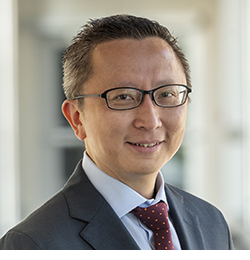 Kenneth K. S. Lau, Ph.D.
Kenneth K. S. Lau, Ph.D.
Professor
Head of the Department of Chemical Engineering
Ph.D. Chemical Engineering, Massachusetts Institute of Technology, Cambridge, Mass.
B.Eng. Chemical Engineering, National University of Singapore, Singapore
“I want to grow the program by attracting more and higher quality students and research-focused faculty,” said Dr. Ken Lau, who plans to move the Department of Chemical Engineering forward on several fronts. “I want to establish a research culture that prepares students for careers in industry and academia.”
Lau taught at Drexel University for 15 years, serving in leadership roles including associate department head for the last five years. In his lab, Lau uses a “greener” method of making polymers called chemical vapor deposition (CVD) for solar cell and energy storage applications.
“My vision is to bring to this very positive culture at Rowan some of the things I learned from growing research programs at Drexel,” Lau said.
Lau’s initiatives include new programs catering to industries in South Jersey and new projects that facilitate industry collaborations. With a focus on diversity, equity and inclusion, Lau hopes to “inspire students to embrace DEI attitudes, mindsets and cultures.”
 Justin C. Major, Ph.D.
Justin C. Major, Ph.D.
Assistant Professor
Experiential Engineering Education (ExEEd)
Ph.D. Engineering Education, Purdue University, West Lafayette, Ind.
Master of Science Aerospace Engineering, Purdue University, West Lafayette, Ind.
Bachelor of Science Mechanical Engineering and Secondary Education in Mathematics, University of Nevada, Reno, Nev.
“Challenging norms is embedded in the culture at Rowan,” said Dr. Justin C. Major. “Henry Rowan said to challenge the status quo. That’s what I want to do—challenge the status quo to make engineering more inclusive.”
Major’s research in engineering education encompasses the experiences of socioeconomically disadvantaged students, trauma and a feminist approach to understanding power in education.
“How can we bring resources to groups that have been deprived because of societal perceptions?” said Major, who once struggled with poverty, food insecurity and homelessness when he was a student. “How can we understand the ecosystem socioeconomically disadvantaged students navigate and how they push back to overcome poverty?”
Major has served in leadership and planning roles with nonprofits like the Optimist International Club, the Fraternal Order of Knights of Pythias, Northern Nevada MathWorks, Northern Nevada Science Olympiads, Northern Nevada MathCounts, Nevada STEMducation and Northern Nevada FIRST. His efforts to bring another food drop to Rowan Hall confront food insecurity on campus.
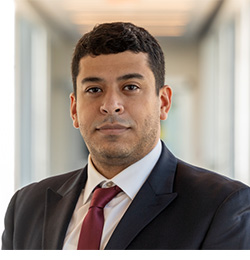 Islam M. Mantawy, Ph.D., P.E.
Islam M. Mantawy, Ph.D., P.E.
Assistant Professor
Department of Civil & Environmental Engineering
Ph.D. Civil Engineering, University of Nevada, Reno, Nev.
M.Sc. Structural Engineering, Ain Shams University, Cairo, Egypt
B.Sc. Civil Engineering, Ain Shams University, Cairo, Egypt
Dr. Islam M. Mantawy’s industry experience as a bridge engineer with the Louis Berger firm and experience teaching at Florida International University have informed his teaching style.
“I try to develop project-based classes,” Mantawy explained. For example, he designed the curriculum of one course so that students spent the last month of class using the exact same codes and software programs he had used in industry work.
Mantawy’s research focuses primarily on advanced technologies in structural resiliency.
“There are so many opportunities in this area,” said Mantawy, who conducts research on additive construction through 3D printing of concrete structures and machine learning applications for monitoring and predicting structural health.
The research infrastructure was a major part of what drew Mantawy to Rowan.
“Looking at centers like CREATES and AMMI, the flourishing collaborations between faculty and the school’s Carnegie R2 (high research activity) classification shows Rowan’s growing resources and trajectory of research,” said Mantawy.
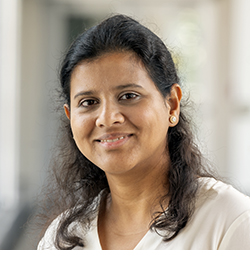 Paromita Nath, Ph.D.
Paromita Nath, Ph.D.
Assistant Professor
Mechanical Engineering
Ph.D. Civil Engineering, Vanderbilt University, Nashville, Tenn.
Master of Science Civil Engineering, Vanderbilt University, Nashville, Tenn.
Master of Engineering Structural Engineering, Birla Institute of Technology & Science Pilani, Hyderabad, India
Bachelor of Engineering, Assam Engineering College, Gauhati University, Guwahati, India
“My work has elements common to both civil and mechanical engineering, so I can do a lot of interdisciplinary research,” said Dr. Paromita Nath. In her research, she has applied uncertainty quantification methodology to a broad range of applications, like additive manufacturing, cancer patient healthcare, and power systems.
“Life is uncertain, and the structures all around us are uncertain,” Nath said. “There are practical applications of the uncertainty quantification in any space.”
Growth and research opportunities are what primarily drew Nath, who has a longstanding interest in working with underrepresented students, to Rowan. Because of her prior industry experience, Nath said, “I can help students bridge the gap between the academic environment and the industry environment.”
“It’s a great time to join the university because you can contribute to its growth trajectory,” Nath said. “Rowan is a collaborative environment within and across departments, and I felt like I could be a part of the community.”
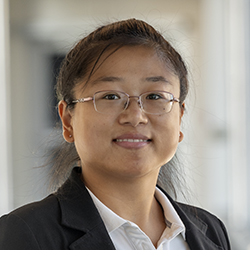 Hua Zhang, Ph.D.
Hua Zhang, Ph.D.
Assistant professor
Electrical & Computer Engineering
Ph.D. Electrical Engineering, Northwestern Polytechnical University, Xi’an, Shaanxi, China
M.Sc. Electrical Engineering, Northwestern Polytechnical University, Xi’an, Shaanxi, China
B.Sc. Electrical Engineering, Northwestern Polytechnical University, Xi’an, Shaanxi, China
“Coming to Rowan was not a hard choice,” said Dr. Hua Zhang. “I could tell from my first interview that it was a very warm and friendly environment here.”
Rowan Engineering’s dual focus on teaching and research fits well with Zhang’s experience. Zhang, who previously taught at Drexel University and San Diego State University, now runs an engineering clinic at Rowan that focuses on her area of research expertise: wireless charging design for vehicles.
“I’ve been lucky to get into such a new topic—an interesting and also challenging one,” said Zhang, who first began researching the area of high-efficiency power electronics technology in 2014. “We are limited by the efficiency of the device, so I am focusing on developing device technology that could contribute to addressing the global issue of climate change. In a new field that is so totally different, you know that whatever you do, it’s going to be exciting.”
